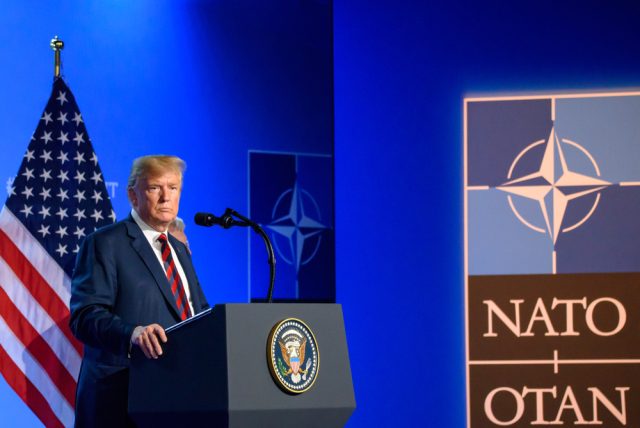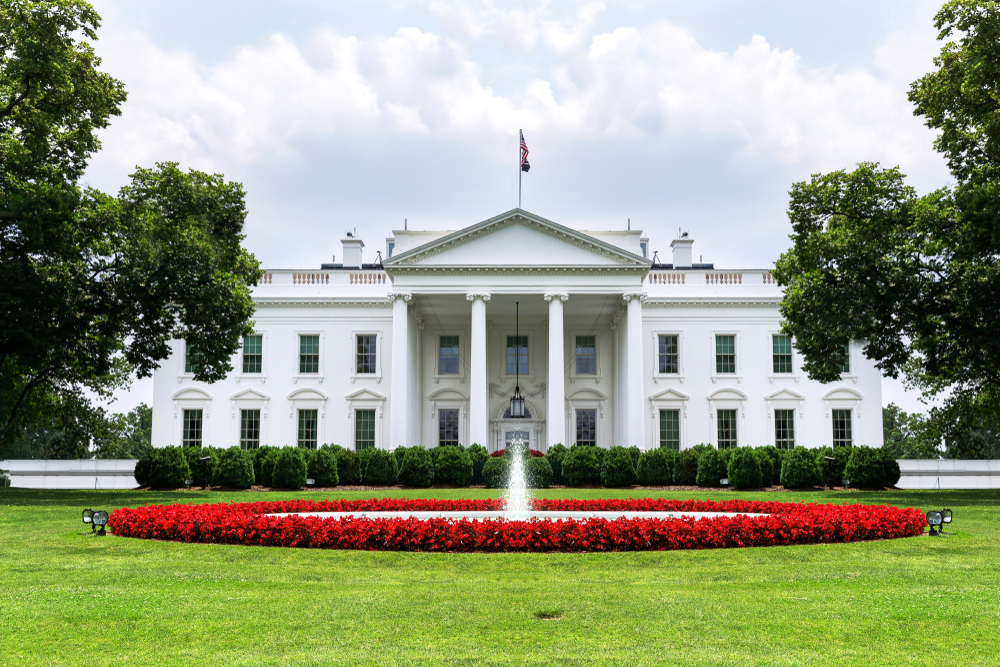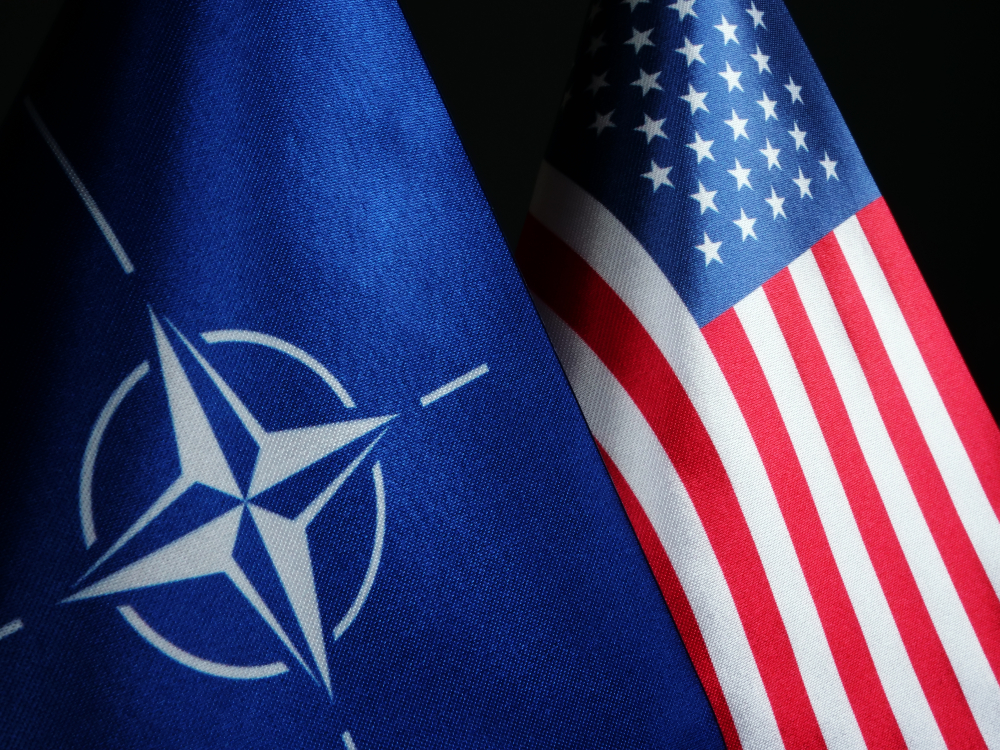
The whole world will be watching the US on the 5th of November, when Americans elect their 60th president and the 2020 election match-up – or “rematch” as the overseas press calls it – between incumbent Democrat Joe Biden and Republican Donald Trump will be replayed. The last such showdown in US history took place in 1956, when Republican Dwight Eisenhower defeated his 1952 challenger, Democrat Adlai Stevenson. If Donald Trump is re-elected, he will be the second president in US history to win two non-consecutive terms. Europe is also paying close attention to the US election and the campaign leading up to it, especially as the future of the transatlantic economic and military relationship depends on the outcome. Because it depends on who will lead the White House in the future whether this relationship will remain one of ‘trust’ and ‘friendship’ with the EU bloc on the old continent. Former president, now presidential candidate Donald Trump wants to “Make America Great Again, Again” (a remake of his previous campaign slogan Make America Great Again and that used by his predecessor Ronald Reagan in 1980 – Let’s Make America Great), but not to contribute to a global balance, but to impose the US from a position of strength, including within the North Atlantic Treaty Organisation.
Trump and Biden won their parties’ nominations
Both Joe Biden and Donald Trump have surpassed the threshold of delegates needed to secure the nomination from their parties for the presidential election. While the Democratic Party’s internal elections went off without much fuss, with Democrats voting in large numbers for the current president, who exceeded the minimum number of votes required. As for Donald Trump, he claimed victory on Super Tuesday, winning 14 of the 15 statewide contests after his last notable challenger, former UN Ambassador Nikki Haley, withdrew.
The confrontation between the two started immediately after the announcement of the results of the internal elections. Trump spoke of his belief that the 2020 election, when he lost, was rigged and that the Fulton County prosecutor was politically persecuting him. The Republican candidate also took aim at Biden, accusing him of being unable to stop the flow of migrants at the southern border during his time in office. Biden responded in kind, speaking of Trump’s “campaign of resentment, revenge and retaliation that threatens the very idea of America.”

It is more than certain that the issue of migration will take centre stage in Donald Trump’s campaign, just as the fight against climate change will be one of Joe Biden’s strong points, issues also touched on in the 2020 campaign and promoted by both of them over the last 4 years. But this year’s campaign will also tackle more sensitive issues such as in vitro fertilisation, recently banned in Alabama, or US relations with NATO countries and Europe, especially in the context of the war in Ukraine.
Fears that Trump will disengage the US from the Ukrainian cause and adopt a pro-Russian stance have been fuelled by reports that he was the one who pressured Republican senators not to vote for $60 billion in promised support for Ukraine. By blocking this support, the US would, in effect, be coming to the support of Vladimir Putin, with whom he was on extremely cordial terms during his first term.
Add to this Trump’s pre-campaign statements that he would have no problem with Russia attacking a NATO member state if it did not pay its dues. He was referring to the 2% of GDP allocation for defence spending, which is set out in the alliance’s treaty. And this in a context where, out of 31 member states, only 11 reach this treaty-mandated level. The former president has repeatedly complained that the US spends far more money than other countries on collective defence. For this reason, not once has he threatened to withdraw the US from NATO.
“Don’t pay, we won’t defend you,” he reportedly told a NATO head of state at a meeting.
“I said, ‘Everybody’s going to pay.’ He replied, ‘Well, if we don’t pay, will you still protect us?’ “Absolutely not.” He couldn’t believe it,” Donald Trump related. “No, I wouldn’t protect you,” Trump recalled telling the president whose name he did not mention. “In fact, I would encourage Russia to do whatever the hell they want. You have to pay. You have to pay your bills,” Trump said in South Carolina, according to media outlets overseas.
The White House evidently called Donald Trump’s remarks “appalling and disturbing”
“President Biden has restored our alliances and made us stronger in the world because he knows that the first responsibility of every commander-in-chief is to keep the American people safe and remain true to the values that unite us. Encouraging invasions of our closest allies by murderous regimes is appalling and disturbing and puts American national security, global stability and our economy at home at risk,” said current White House spokesman Andrew Bates.
Vladimir Putin has also returned the favour, saying recently that he would prefer Biden in the White House because he has more experience and is “more predictable”. Now, that, in Trump’s view “is a compliment”.
“That’s a compliment. A lot of people said, ‘Oh, no, that’s too bad.’ No, no, this is a good thing. And of course he would say that. He doesn’t want to have me. He wants Biden because he’ll give him everything he wants, including Ukraine,” Trump said at an election rally in South Carolina.
With NATO, Trump wouldn’t be making his first attempt to pull the US out of an assumed international treaty. In 2017, under his presidency, the US withdrew from the Paris Climate Change Treaty, which committed signatories to a series of targets and actions to combat climate change. At the time, Trump said the agreement – negotiated under Democrat Barack Obama, “will punish the American people while enriching foreign polluters”.

It is expected that, if he becomes president again, Trump will turn the US back from the path it embarked on under Biden in the fight against global warming, because for the 77-year-old Republican this is just a myth. Against the backdrop of the devastating California wildfires in 2022, he downplayed the role of climate change in triggering them, saying he doesn’t think “science knows”, referring to global warming. The US effectively pulled out of the Paris Agreement in November 2020 and re-entered early the following year with the installation of Joe Biden in the White House.
Trump has also created unrest within his own party with his statements on the controversial Alabama court decision banning in vitro fertilisation because it rules that embryos are babies.
“Like the overwhelming majority of Americans, including the vast majority of Republicans (…), I strongly support access to in vitro fertilisation for couples trying to have a child. (…) “Under my leadership, the Republican Party will always support the creation of strong American families,” the former president said on his social media network Truth.
While Biden’s similar stance surprised no one, Trump’s statements displeased some conservative Republican circles, which are traditionally known to defend family and religious values by opposing abortion. The debate comes two years after the US Supreme Court struck down the constitutional guarantee of abortion, leaving it up to the states to decide on the issue.
In a Reuters/Ipsos poll released in mid-March, the incumbent US president is reported to have a narrow lead of just one percentage point over his main challenger Donald Trump. If the poll’s margin of error (1.8 percentage points) is taken into account, Biden’s lead is quite fragile. At the same time, many eligible voters said they were undecided, 11% said they would vote for other candidates, 5% said they would not vote, and 7% said they did not know or refused to answer the question.



 Subscribe
Subscribe